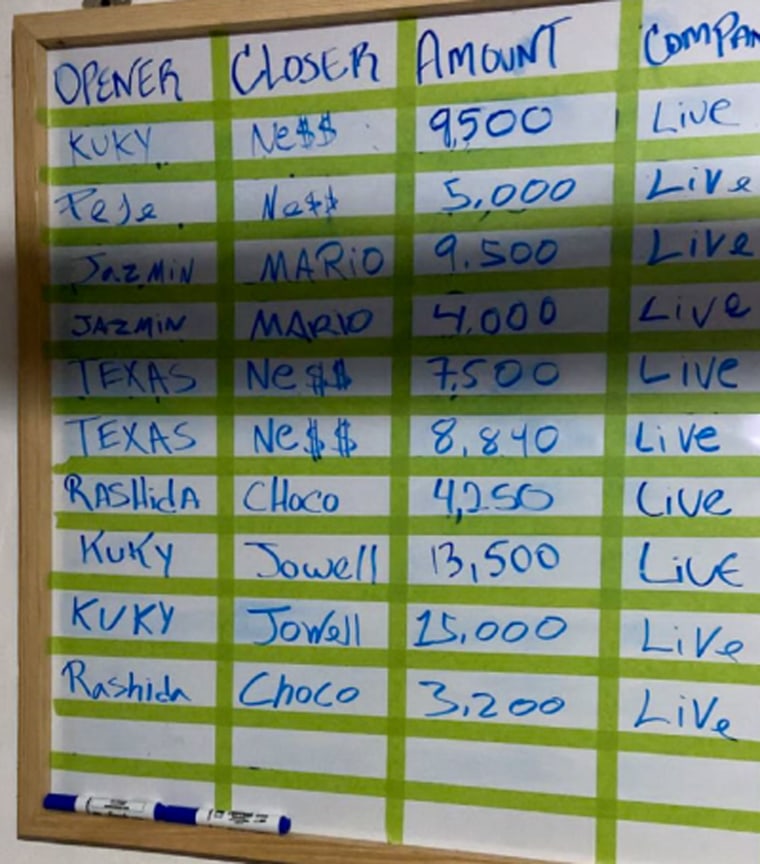Share this @internewscast.com
Thirteen individuals from the Dominican Republic have been accused of defrauding 400 U.S. grandparents out of $5 million by pretending to be their grandchildren in distress over the phone — sometimes repeatedly targeting the same victims — federal prosecutors announced on Tuesday.
Grandparents in Massachusetts, California, New York, Florida, and Maryland received phone calls from people claiming to be their grandchild, stating that they had been in a car accident, were arrested, or facing another emergency, according to Leah Foley, the U.S. attorney for the district of Massachusetts.
Foley stated that the scam’s intention was to deceive the elderly into giving away their life savings to assist their loved one. Many times, Foley noted, the scammers repeatedly contacted the victims, simulating another emergency to extort more money.
“These scams are not just financially devastating; they are emotionally traumatizing,” Foley declared at a Boston news conference on Tuesday. “Many victims not only lost their savings but also their sense of safety, judgment, and trust in the world around them.”
Prosecutors stated that the defendants operated a sophisticated criminal organization through structured call centers in the Dominican Republic. They hired English-speaking individuals to impersonate grandchildren and lawyers, as well as others in the U.S. to retrieve cash from victims’ homes, Foley explained.
The average age of the victims was 84, and at least 50 of them were in Massachusetts, she said.
In some instances, the scammers knew the grandchild’s name, Foley mentioned. In other cases, prosecutors said they employed a generic script, introducing themselves as “your oldest grandson.”

The defendants are all citizens of the Dominican Republic. Nine are in custody, while four — from New York, New Jersey and Florida — are still at-large, prosecutors said.
Most of them face a conspiracy to commit mail fraud and wire fraud charge, which is punishable by up to 20 years in prison, and a money laundering conspiracy charge, which is also punishable by up to 20 years in prison.
The fraud scheme is not uncommon. In March, authorities charged 25 Canadian suspects with bilking U.S. seniors out of $21 million in a similar grandparent scam.
Ted Docks, the special agent in charge of the FBI’s Boston field office, said criminals overseas are “doing this in epidemic levels.”
“What the accused did in targeting our seniors was calculated, cold-hearted and cruel,” he said. “No grandparent should ever have to wonder if the next call they get is it a cry for help or a trap.”









